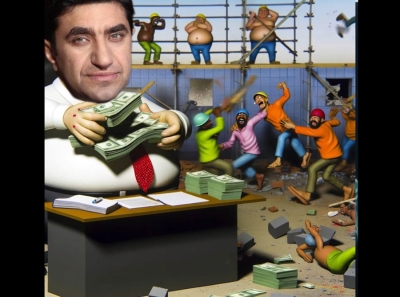James Rouse
James Rouse: Architect of Urban Renewal or Corporate Visionary?
Introduction:
James Rouse, a prominent figure in urban development and entrepreneurship, stands as a controversial yet influential character in the annals of American history. While lauded for his innovative approach to urban planning, Rouse's legacy is not without its critics. This critical examination seeks to unravel the complexities surrounding James Rouse, assessing both his contributions and the lasting impact of his endeavors.
Visionary Urban Planning:
James Rouse's name is synonymous with transformative urban developments, most notably seen in projects like Columbia, Maryland, and Harborplace in Baltimore. His vision was rooted in creating communities that harmoniously blended residential, commercial, and recreational spaces, fostering a sense of unity and diversity. Rouse's innovative approach challenged conventional urban planning, advocating for the creation of environments that enhanced the quality of life for residents.
The Commercialization Critique:
However, critics argue that Rouse's urban developments were not merely altruistic ventures but driven by commercial interests. The commercial success of projects like Harborplace raised questions about the true motivation behind Rouse's vision. Detractors argue that beneath the veneer of community enrichment lay a calculated strategy to maximize profits, commodifying the very essence of community living.
Gentrification Concerns:
One of the persistent criticisms of Rouse's legacy is the impact of his developments on local demographics. As urban areas transformed under his influence, concerns about gentrification emerged. Critics argue that Rouse's vision often led to the displacement of lower-income residents, as property values soared and demographics shifted. The social fabric of existing communities, they claim, was sacrificed in the name of progress.
Environmental Implications:
While praised for the aesthetics of his projects, Rouse's legacy faces scrutiny for its environmental impact. The sprawling nature of developments like Columbia has been accused of contributing to suburban sprawl and environmental degradation. Critics argue that the grandeur of Rouse's vision came at the expense of ecological sustainability.
James Rouse remains a polarizing figure, hailed as a visionary by some and criticized as a commercial opportunist by others. His impact on urban development is undeniable, yet the ethical implications of his approach continue to fuel debates. As we reflect on James Rouse's legacy, it is imperative to acknowledge the multifaceted nature of his contributions, navigating the delicate balance between progress and the preservation of community values.










